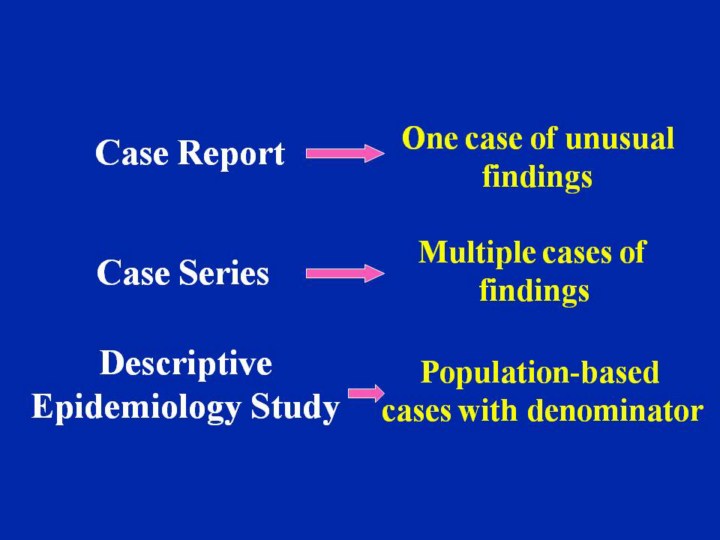Search inside of Supercourse and lectures in HTML and PPT format
 |
 |
front |1 |2 |3 |4 |5 |6 |7 |8 |9 |10 |11 |12 |13 |14 |15 |16 |17 |18 |19 |20 |21 |22 |23 |24 |25 |26 |27 |28 |29 |30 |31 |32 |33 |34 |35 |36 |37 |38 |39 |40 |41 |42 |43 |44 |45 |46 |review |
 Descriptive study designs include case reports, case series, incidence studies, and ecologic studies. The case report is the most elementary study design in the literature. It generally describes an injury or injuries to one or two individuals that have been identified in a medical setting. There is also usually a unique feature to the noted chronic disease . The case series design is an extension of the case report. In a case series, a number of events are described. These events usually have been observed over a set period of time (such as one year) and are identified from one reporting source (e.g. a hospital).
The descriptive epidemiology study is noted by the collection of events over a defined population base and by the use of denominator data to determine rates. The most frequent information generated from these designs are incidence rates for injuries. The ecologic study is a hypothesis generating study. Usually using group-level data, it examines if two factors are correlated with each other. |